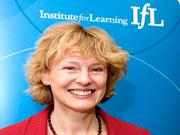FE and school teachers could consign skills shortcomings and shortages to history

There are many reasons for our historic national shortcomings in vocational education and skills training. One major blockage has been the reluctance to allow expert vocational teachers into the school classroom to teach their specialist subject and pass on their knowledge of the world of work and enterprise to young people. Given that history, no wonder skills for employment and enterprise are in short supply among young people.
Another key blockage is the endemic inability to trust professional educators to deliver genuine innovation and improvement in a curriculum they have designed with others, including employers, that builds on but is far broader than ‘delivering’ qualifications requirements. This flexibility, led by professionally qualified and up-to-date teachers and trainers, is necessary in order to meet the needs of the economy and communities more effectively than by proxy through qualifications alone.
This is why the government’s formal acceptance of the recommendations made by Professor Alison Wolf in her review of vocational education may have unlocked more than most people realise, and created a major cultural shift towards young people in schools being far more excited and engaged by vocational learning.
Professor Wolf said that those teaching in further education who have Qualified Teacher Learning and Skills (QTLS) status should be recognised for teaching in schools. Currently this is not the case, although school teachers with Qualified Teacher Status (QTS) can teach in FE establishments.
For over two years, the Institute for Learning (IfL), the independent professional body for FE teachers and trainers, had campaigned to end the second-class treatment of our members and the loss of their expertise to young people in schools. IfL’s persistent position that the case for change was irresistible won the day, meaning that young people should be able to have the very best vocational experts teaching them, whether in college or in a school. We were delighted when Michael Gove, the education secretary, accepted Alison Wolf’s recommendation on 3 March 2011, the day her report was published, and that he has now confirmed the government’s intention to change the law and implement the recommendation for QTLS to be recognised for teaching in schools as soon as possible.
Yet concerns have been raised that once FE educators – who according to the University and College Union are generally paid 5 per cent less than school teachers – get a foot inside the classroom, employers will use their lower pay as an excuse to drive down wages for school teachers.
Teaching unions are rightly protective of members’ terms and conditions. As the professional body, IfL’s core mission is to improve the professional standing and practice of our members, thereby enabling them to be recognised and valued properly, wherever they are employed, to teach or train young people or adults.
Our members adhere to IfL’s code of professional practice. Bit by bit, we are helping to restore the status of FE teachers and trainers, who once enjoyed a similar standing to that of school teachers and university lecturers. In the process, raised status for teachers and trainers, our members, helps to raise the quality, reputation and status of the whole of further education and training.
So, as FE teachers and trainers start to enter the school classroom, IfL insists not only that they are on a par professionally with their school colleagues, but that our members should be treated as fairly in all other matters.
Working with their QTS colleagues in schools, FE practitioners with the full professional status of QTLS present a powerful case for greater trust in teaching professionals and what they can do, through learning together from across the very best in the sectors, to improve education at all levels and in all settings.
The abolition of unnecessary professional barriers between further and school-based education is surely a prerequisite for achieving brilliant education for young people – whether they are known as pupils, students or learners. To avoid repeating past failures, education and training in the UK must equip and re-equip people with the knowledge, skills and opportunities to succeed in a fast-changing world.
Communication and collaboration between different parts of our education structure – between colleges and schools, schools and universities and colleges and universities – are crucial in meeting the needs of learners and employers.
And no part of a properly inter-related education system should be seen, or worse still treated, as second class to any other.
Toni Fazaeli is the chief executive of the Institute for Learning (IfL), the professional body for teachers, trainers, tutors and student teachers across the further education and skills sector
Read other FE News articles by Toni Fazaeli:??
A licence to practise in FE and skills
Food for thought – how FE catering teachers and trainers keep up to date











Responses